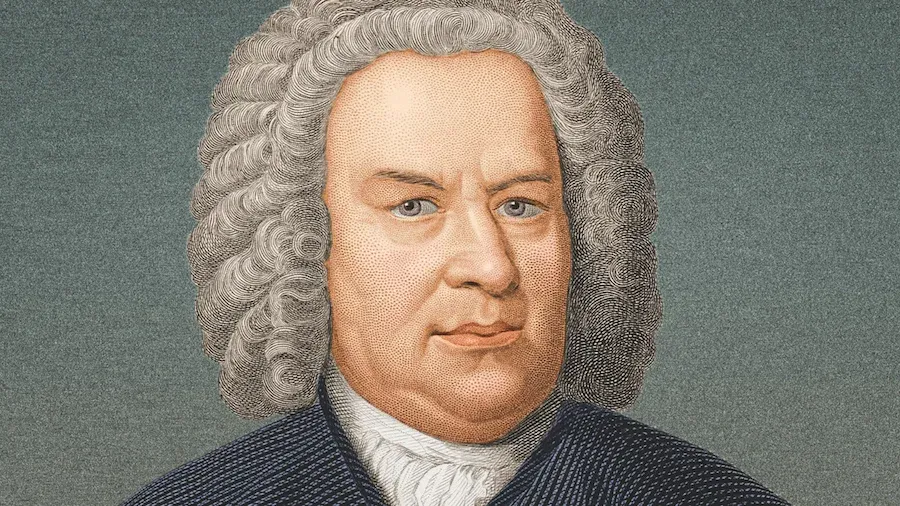The Influence of J.S. Bach on Modern Classical Music
Johann Sebastian Bach's genius in composition, intricate counterpoint, and harmonic innovation laid the foundation for modern classical music. His work continues to inspire musicians, composers, and scholars, shaping the evolution of Western music across centuries.

Johann Sebastian Bach, a cornerstone of Western classical music, has exerted an unparalleled influence on the development of modern classical music. His genius in composition, intricate counterpoint, and harmonic innovation set a foundation that continues to inspire and challenge musicians, composers, and scholars. This article explores Bach’s monumental contributions and examines how his work shapes contemporary classical music.
Johann Sebastian Bach: A Brief Biography
Born on March 31, 1685, in Eisenach, Germany, Johann Sebastian Bach was destined for a life steeped in music. Coming from a long line of musicians, Bach's early exposure to music education and his extraordinary talent quickly set him apart. By his teenage years, Bach was already proficient on the organ and other keyboard instruments, a skill that would define much of his career.
Bach held several important positions throughout his life, including court musician in Weimar, music director in Köthen, and most famously, the cantor of St. Thomas Church in Leipzig. His responsibilities in these roles ranged from composing new music, performing, and teaching, to overseeing the music for worship services. Despite facing personal and professional challenges, Bach's output was prolific, encompassing a vast array of genres and styles.
Bach’s Compositional Mastery
Bach's music is renowned for its complexity, technical brilliance, and emotional depth. His mastery of counterpoint—the art of combining independent melodic lines—remains a pinnacle of Western music. Works like "The Art of Fugue" and "The Well-Tempered Clavier" exemplify his skill in creating intricate, interwoven textures that are both intellectually stimulating and profoundly expressive.
In addition to his technical prowess, Bach's harmonic innovations were groundbreaking. His ability to modulate through distant keys and his use of chromaticism expanded the harmonic vocabulary of his time. This harmonic richness can be heard in his chorales, cantatas, and keyboard works, providing a model that composers would study and emulate for centuries.
The Influence of Bach on Classical Music
The Classical Era: Haydn, Mozart, and Beethoven
Although the Classical era composers like Haydn, Mozart, and Beethoven moved towards a simpler, more homophonic style, Bach's influence remained significant. Haydn and Mozart studied Bach's works meticulously, absorbing his contrapuntal techniques and harmonic ideas. Beethoven's music, with its structural rigor and emotional depth, reflects a deep understanding of Bach's principles.
Mozart's admiration for Bach is well-documented; he arranged several of Bach's fugues for string quartet and incorporated contrapuntal passages reminiscent of Bach's style into his own compositions. Beethoven, whose late works exhibit a profound engagement with counterpoint, famously declared, "Bach should be called the father of all music."
The Romantic Era: Schumann, Mendelssohn, and Brahms
During the Romantic era, Bach's music saw a resurgence in popularity, thanks in part to the efforts of composers like Felix Mendelssohn, who organized a seminal performance of Bach’s "St. Matthew Passion" in 1829. This event sparked renewed interest in Bach’s works and highlighted their emotional and spiritual depth.
Robert Schumann and Johannes Brahms were deeply influenced by Bach's music. Schumann's piano works and choral compositions often reflect Bach's contrapuntal techniques and structural clarity. Brahms, known for his complex structures and dense textures, frequently studied Bach's compositions, drawing inspiration for his own fugues and variations.
Bach in the 20th and 21st Centuries
The Neoclassical Movement
The 20th century saw a wide range of stylistic developments in classical music, many of which trace their roots back to Bach. The Neoclassical movement, led by composers like Igor Stravinsky and Paul Hindemith, sought to revive the clarity and balance of earlier musical forms. Stravinsky's "Dumbarton Oaks Concerto" and Hindemith's "Ludus Tonalis" exhibit a clear homage to Bach's contrapuntal techniques and formal structures.
Serialism and Modernism
Even the seemingly radical innovations of the serialists and modernists bear traces of Bach’s influence. Arnold Schoenberg, the pioneer of twelve-tone music, was a great admirer of Bach and often employed techniques derived from Bach’s contrapuntal methods. Schoenberg's use of inversion, retrograde, and augmentation can be seen as a modern extension of Bach’s fugue techniques.
Bach and Contemporary Classical Music
In contemporary classical music, Bach's legacy continues to resonate. Minimalist composers like Steve Reich and Philip Glass have acknowledged Bach’s influence on their repetitive, patterned structures. Reich’s "Counterpoint" series explicitly references Bach’s contrapuntal ingenuity.
Moreover, Bach's music has found a place in the digital age. The rise of historically informed performance practice, which aims to recreate the sound world of Bach’s time, has brought a new dimension to his works. Performers and ensembles specializing in Baroque music, such as John Eliot Gardiner’s English Baroque Soloists and Masaaki Suzuki’s Bach Collegium Japan, have brought fresh insights into Bach’s music, making it relevant to modern audiences.
Bach’s Legacy
Bach’s influence on modern classical music is profound and multifaceted. His contributions to compositional technique, harmonic language, and musical form are foundational, serving as both a touchstone and a source of inspiration for countless composers. His works continue to be studied, performed, and revered, reflecting an enduring legacy that transcends time and stylistic boundaries.
In sum, Johann Sebastian Bach's impact on modern classical music is immeasurable. His genius not only shaped the music of his own time but also laid the groundwork for future generations of composers. Through the centuries, Bach's music has remained a beacon of artistic excellence, its complexity, beauty, and emotional power continuing to inspire and captivate musicians and listeners alike.






